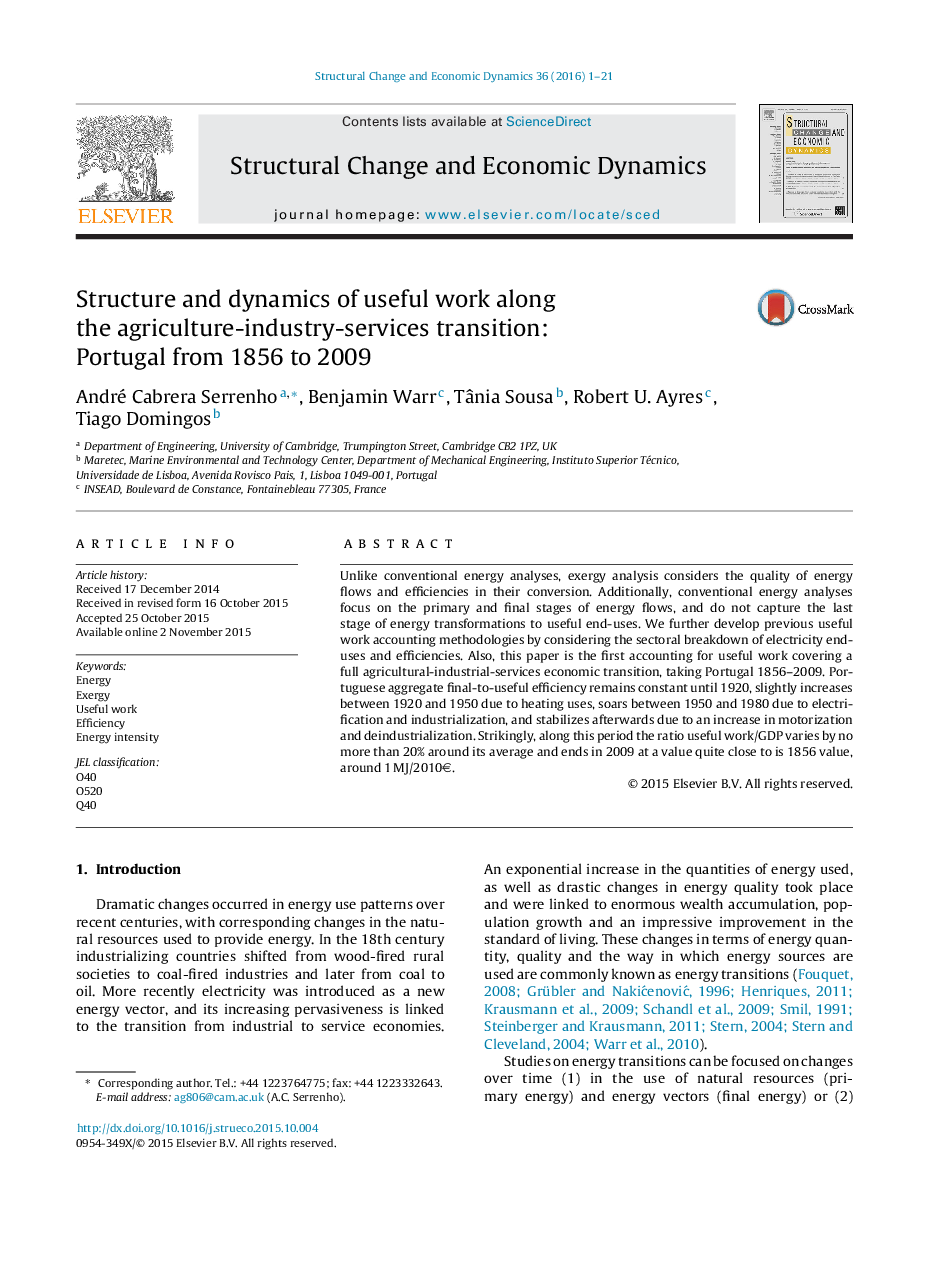| Article ID | Journal | Published Year | Pages | File Type |
|---|---|---|---|---|
| 988145 | Structural Change and Economic Dynamics | 2016 | 21 Pages |
•We describe an improved methodology for useful work accounting.•This methodology is applied to full transition agriculture-industry-services.•Energy transitions by source and by use are identified and explained.•Future sustainability requires a focus on energy efficiencies.
Unlike conventional energy analyses, exergy analysis considers the quality of energy flows and efficiencies in their conversion. Additionally, conventional energy analyses focus on the primary and final stages of energy flows, and do not capture the last stage of energy transformations to useful end-uses. We further develop previous useful work accounting methodologies by considering the sectoral breakdown of electricity end-uses and efficiencies. Also, this paper is the first accounting for useful work covering a full agricultural-industrial-services economic transition, taking Portugal 1856–2009. Portuguese aggregate final-to-useful efficiency remains constant until 1920, slightly increases between 1920 and 1950 due to heating uses, soars between 1950 and 1980 due to electrification and industrialization, and stabilizes afterwards due to an increase in motorization and deindustrialization. Strikingly, along this period the ratio useful work/GDP varies by no more than 20% around its average and ends in 2009 at a value quite close to is 1856 value, around 1 MJ/2010€.
